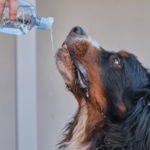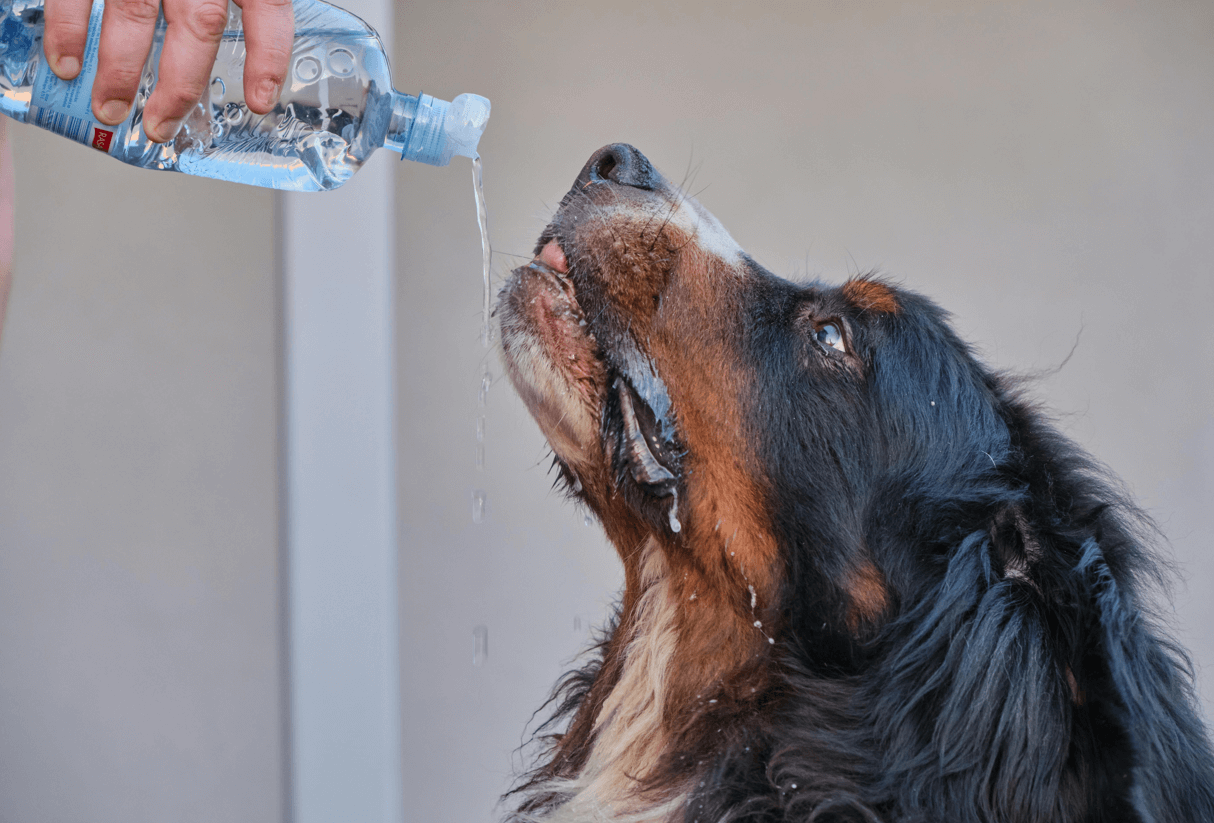Bernese Mountain Dog Health Issues, Affectionate, striking, and gentle, are beloved breeds on the show floor. But being a giant breed with a short lifespan, they are susceptible to numerous Bernese Mountain Dog health issues, which owners must consider. Thorough care, early detection, and taking preventive measures can lead to a longer, healthier, and happier life for these beautiful companions.

Health Problems of the Bernese Mountain Dog Health Issues
Cancer: A Major Concern
The serious degree of health issues in Bernese Mountain Dog Health Issues most commonly occurring would be cancer. Studies show that close to 50% of Bernese Mountain Dogs get some type of cancer throughout their lives, which is a major contributor to their infamous shorter life span.
The most common cancer types found in Bernese Mountain Dog Health Issues:
Histiocytic Sarcoma.
- Mast Cell Tumors: These are skin tumors that can metastasize if not found early.
- Lymphoma: A cancer of the lymphatic system, causing swollen lymph nodes and fatigue.
Prevention & Care:
- Bring your cat in for regular veterinary exams to catch any abnormal growth early on.
- Nutrient-rich Diet with Antioxidants for Immunity Boost
- If you can, think about getting genetic testing, to look for risk factors.
- Steer clear of environmental toxins such as pesticides and cigarette smoke.
- Consume cancer-destroying supplements such as turmeric and omega-3 fatty acids.
Hip & Elbow Dysplasia
As a breed, Bernese Mountain Dogs Health Issues tend to develop hip and elbow dysplasia, joint abnormalities that often result in degenerative arthritis and impair mobility because of their large size.
Signs and Symptoms:
- Issues with standing up or walking
- Limping or favoring one leg
- Decreased activity levels
- Signs of lameness, particularly post-exercise
Prevention & Care:
- Keep a healthy weight to decrease stress on your joints
- Add glucosamine and chondroitin supplements for joint health.
- Do not over-exercise puppies, as this can damage their joints.
- Provide orthopedic beds for joint support.
- Do low-impact activities such as swimming and short walks.
Bloat (Gastric Dilatation-Volvulus)
Bloat is a potentially fatal condition that occurs when the stomach becomes filled with gas and then twists, cutting off the supply of blood.
Risk Factors:
- Eating too quickly
- Working Out Right After a Meal
- Feeding less frequently and serving larger meals
- Stress or anxiety
Prevention & Care:
- How to prevent them from gulping: use a slow feeder bowl
- Feed several smaller meals instead of one or two large ones.
- Do not exercise for at least one hour before and one hour after eating.
- Use probiotics to help with digestion.
- Look out for emergency signs like panting, drooling, and a bloated tummy.
Progressive Retinal Atrophy (PRA)—Eye Problems
This genetic eye condition slowly leads to vision loss and blindness.
Symptoms to Watch For:
- Night blindness or aversion to going outside in dim light
- Bumping into objects
- Cloudy eyes
- Dilated pupils
Prevention & Care:
- Routine eye examinations by a veterinary ophthalmologist.
- Serve antioxidant-rich foods such as blueberries and carrots.
- Make surroundings recognizable and secure if vision deteriorates.
- If any are recommended, consider surgical interventions.
Best Care Practices for a Bernese Mountain Dog Health Issues
1. Proper Nutrition and Diet
A well-balanced diet is crucial for preventing health issues.
| Nutrient | Benefit | Food Sources |
|---|---|---|
| Protein | Supports muscle health | Chicken, fish, lean beef |
| Omega-3 Fatty Acids | Reduces inflammation and supports brain health | Salmon, flaxseed, fish oil |
| Glucosamine & Chondroitin | Enhances joint health | Green-lipped mussels, bone broth |
| Antioxidants | Boosts immune system | Blueberries, carrots, spinach |
| Probiotics | Aids digestion and gut health | Yogurt, kefir, pumpkin |
2. Regular Exercise and Mental Stimulation
- Assume fitness through light walking and brisk walks on alternate days.
- Engage with them with interactive toys and puzzles to avoid boredom.
- Don’t overjump, or you could hurt their joints.
- Mental and physical, agility training is a great way to add variety.
3. Regular Check-ups and Vaccinations
- Some have annual wellness exams to catch things early.
- Stay in compliance with vaccinations to avoid infections.
- How many recent dental checkups to keep the mouth clean?
- Blood tests are done regularly to ensure internal organ health.
4. Grooming and Hygiene Maintenance
- Brushing: More than once every 3-4 days to avoid matting.
- Bath: Every 6-8 weeks with a dog-friendly shampoo
- NAIL TRIMMING—Nailed it. Every 4-6 weeks.
- Ear grooming: once a week to avoid infections.
Conclusion
Although Bernese Mountain Dogs Health issues can have certain health conditions, taking proactive measures such as proper nutrition and regular vet check-ups can add years to their lives, or at least give them a better quality of life. As a responsible pet owner, being aware of these risks and taking preventative measures can help your fur baby live the longest, healthiest life possible.
Frequently Asked Questions (FAQs)
1. What is the average lifespan of a Bernese Mountain Dog Health issue?
The average lifespan is 7-10 years, but proper care can sometimes extend their life expectancy.
2. How can I prevent joint problems in my Bernese Mountain Dog?
Maintain a healthy weight, provide joint supplements, and avoid high-impact activities.
3. Are Bernese Mountain Dogs prone to allergies?
Yes, they can develop food and environmental allergies, leading to itching and skin issues.
4. What should I feed my Bernese Mountain Dog for optimal health?
A balanced diet with high-quality protein, healthy fats, and essential vitamins is ideal.
5. Can Bernese Mountain Dogs live longer with proper care?
Yes! With regular vet checkups, proper diet, and exercise, some Bernese Mountain Dogs have lived beyond 10 years.

